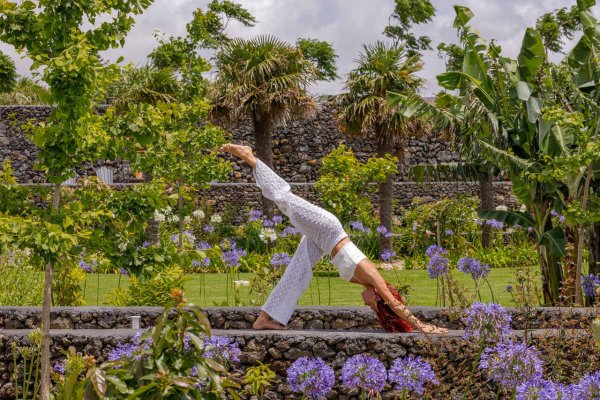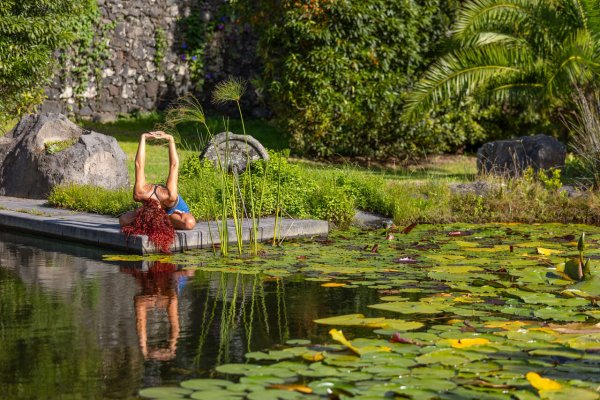


Yoga as a space for presence, not rivalry.
Yoga is much more than poses or flexibility. It is a path of union between body, mind, and spirit that teaches us to be fully present. It’s not about competing, but about feeling, observing, and accepting. Each practitioner is unique — with their own body, history, and personal journey — and it’s precisely this uniqueness that makes the practice so personal and transformative.
In the yoga classes I facilitate on the island of São Miguel, I strive to create a safe space where everyone feels comfortable practicing at their own pace, with respect and compassion for themselves, free from any demand for performance.
Two fundamental principles support this approach: Ahimsa and Santosha.
Ahimsa, or non-violence, applies not only to how we treat others but also to how we treat ourselves. Practicing Ahimsa means respecting our limits, listening closely to the body, and not pushing beyond what it can comfortably offer.
Santosha, or contentment, refers to the ability to find peace with what we have and who we are in the present moment. Living Santosha means cultivating gratitude, even in the face of challenges — freeing ourselves from the constant need to improve or achieve something. Instead, we recognize the value of who we already are and the path we’ve been walking.
The practice of yoga invites self-observation: feeling the body, noticing the breath, and welcoming whatever arises — emotions, thoughts, sensations. It’s a space for inner listening, where judgment loses strength and comparison no longer makes sense. When we stop competing and begin to accept who we are, we create space to live with greater freedom and authenticity.
Comparison, even subtle, distances us from this listening and from connecting to the present moment as it is. When we catch ourselves competing — on or off the mat — we fall into the trap of seeking external validation and lose touch with who we truly are. Moreover, we waste a huge amount of energy focusing on others instead of channeling it into our own growth and well-being. Yoga helps us recognize this pattern and cultivate a more compassionate and grounded perspective.
For yoga to be truly transformative, it must be integrated beyond the physical dimension. Principles like Ahimsa and Santosha are not just ideas to apply during practice; they are living attitudes that shape how we relate to the world, to others, and to ourselves.
Yoga vs competition, in essence, is a choice: between living for the approval of others or living in harmony with who we are. On the mat and in life, may we choose to practice with lightness, awareness, and truth.


